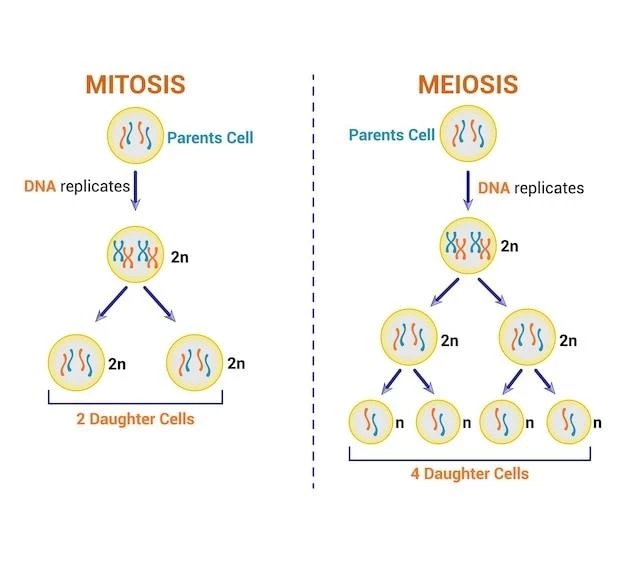Disease ─ Inborn Amino Acid Metabolism Disorder
An inborn amino acid metabolism disorder is a genetic disorder that affects the body’s ability to process certain amino
acids. This article will explore the symptoms, impact of genetic deficiency on protein metabolism, treatment options,
complications, hereditary nature, and research in this field.
Inborn amino acid metabolism disorders are genetic conditions that result from defects in enzymes responsible for breaking down amino acids. These disorders can lead to a buildup of toxic byproducts, causing a range of health problems. Each disorder is characterized by a specific enzyme deficiency that disrupts the metabolism of a particular amino acid.
There are various types of inborn amino acid metabolism disorders, such as phenylketonuria (PKU), maple syrup urine disease, and homocystinuria. These disorders are typically inherited in an autosomal recessive pattern, meaning that a child must inherit two copies of the defective gene to develop the disorder.
Individuals with these disorders may experience a wide array of symptoms, including developmental delays, seizures, intellectual disabilities, skin abnormalities, and metabolic crises. Early diagnosis through genetic testing is crucial to effectively manage these conditions and prevent complications.
Understanding the underlying genetic mutations that cause these disorders is essential for developing targeted treatments. Ongoing research aims to improve diagnostic methods, develop new therapeutic strategies, and explore potential gene therapies to address the root genetic causes of inborn amino acid metabolism disorders.
Symptoms and Diagnosis
The symptoms of inborn amino acid metabolism disorders can vary widely depending on the specific amino acid affected and the extent of enzyme deficiency. Common symptoms may include neurological issues like seizures, developmental delays, intellectual disabilities, poor muscle tone, and skin changes.
Diagnosis of these disorders often involves newborn screening tests, where elevated levels of certain amino acids or their byproducts in blood or urine can indicate a potential disorder. Confirmatory diagnostic tests typically include genetic testing to identify specific mutations in the genes responsible for the enzyme deficiencies.
Early diagnosis is crucial as it allows for prompt initiation of treatment to prevent complications associated with these disorders. Additionally, early intervention can help improve outcomes for affected individuals by managing symptoms and providing appropriate dietary modifications.
Individuals suspected of having an inborn amino acid metabolism disorder should undergo a thorough clinical evaluation by a medical geneticist or metabolic specialist. This evaluation may include a detailed medical history, physical examination, laboratory tests, imaging studies, and genetic counseling to understand the implications of the diagnosis.
Impact of Genetic Deficiency on Protein Metabolism
The genetic deficiency in inborn amino acid metabolism disorders disrupts the body’s ability to process specific amino acids, which are the building blocks of proteins. This disruption hinders the normal breakdown and utilization of these essential nutrients, leading to the accumulation of toxic byproducts.
Due to the impairment in protein metabolism, individuals with these disorders may experience a range of systemic effects. The inadequate processing of amino acids can affect various tissues and organs, particularly the brain, liver, and kidneys. This disruption can result in neurological dysfunction, liver dysfunction, kidney damage, and other organ-specific complications.
Furthermore, the accumulation of toxic byproducts in the body can have detrimental effects on cellular function and overall metabolic processes. This imbalance in protein metabolism can also interfere with normal growth and development, potentially causing long-term consequences if not properly managed.
Understanding the profound impact of genetic deficiencies on protein metabolism is essential for tailoring treatment approaches to address the specific challenges faced by individuals with inborn amino acid metabolism disorders. Therapies aimed at restoring proper amino acid balance and minimizing toxic buildup play a crucial role in managing these complex genetic conditions.
Treatment and Therapy Options
The treatment of inborn amino acid metabolism disorders aims to manage symptoms, prevent complications, and improve overall quality of life for affected individuals. Dietary interventions play a crucial role in managing these genetic conditions, as certain amino acids may need to be restricted or supplemented.
Individualized dietary plans, often created in consultation with a metabolic dietitian, can help maintain proper amino acid balance and prevent the accumulation of toxic byproducts. These specialized diets may involve limiting protein intake, avoiding specific amino acids, or supplementing with cofactors that aid in amino acid metabolism.
In some cases, medical foods or formulas designed to meet the nutritional needs of individuals with these disorders may be recommended. Enzyme replacement therapies, aimed at replenishing deficient enzymes, are being investigated as potential treatment options to address the underlying enzymatic deficiencies in certain inborn amino acid metabolism disorders.
Regular monitoring of blood amino acid levels, metabolic markers, and overall health is essential to gauge treatment effectiveness and make necessary adjustments to the management plan. Close collaboration between metabolic specialists, genetic counselors, and other healthcare providers is key to providing comprehensive care for individuals with these complex genetic conditions.
Complications and Long-Term Prognosis
Inborn amino acid metabolism disorders can lead to various complications if not properly managed. Accumulation of toxic byproducts due to enzyme deficiencies can result in metabolic crises, which may manifest as seizures, neurologic deterioration, or life-threatening organ dysfunction.
Long-term complications of these disorders can include developmental delays, intellectual disabilities, growth delays, and organ damage. Individuals with certain inborn amino acid metabolism disorders may be at an increased risk of osteoporosis, cardiovascular issues, and kidney problems later in life.
The long-term prognosis for individuals with these disorders can vary depending on factors such as the specific disorder, the degree of enzyme deficiency, timing of diagnosis, and effectiveness of treatment. Early detection and intervention are crucial in improving outcomes and minimizing the risk of complications.
With advances in medical management and genetic therapies, there is growing hope for individuals affected by inborn amino acid metabolism disorders. Research into new treatment modalities and technological advancements in genetic testing offer promise for enhanced diagnosis, treatment, and long-term care for those living with these complex genetic conditions.
Hereditary Nature and Genetic Counseling
Inborn amino acid metabolism disorders are typically hereditary and follow various patterns of inheritance, such as autosomal recessive or X-linked recessive. Genetic mutations in specific genes coding for enzymes involved in amino acid metabolism are passed down from parents to their children.
Genetic counseling plays a crucial role in helping individuals and families understand the hereditary nature of these disorders, assess their risk of having affected children, and make informed decisions about family planning. Genetic counselors can provide detailed information about the underlying genetic mutations, recurrence risks, and available testing options.
Carrier testing, prenatal testing, and preimplantation genetic diagnosis (PGD) are valuable tools in identifying individuals at risk of passing on inborn amino acid metabolism disorders to their offspring. Through genetic counseling, individuals can explore their reproductive options and make choices that align with their values and preferences.
By raising awareness about the hereditary nature of these disorders and providing guidance on family planning strategies, genetic counseling helps empower individuals to make informed choices about their reproductive health and the well-being of future generations.

Research and Future Directions
Ongoing research into inborn amino acid metabolism disorders focuses on advancing diagnostic techniques, developing innovative treatments, and exploring potential gene therapies. Scientists are investigating novel therapeutic approaches aimed at addressing the underlying genetic mutations responsible for enzyme deficiencies.
Genetic testing methods continue to evolve, allowing for more precise identification of genetic mutations associated with these disorders. Improved diagnostic tools enable healthcare providers to detect inborn amino acid metabolism disorders earlier, leading to timely interventions and personalized treatment strategies.
Future directions in research involve exploring gene editing technologies, like CRISPR-Cas9٫ to correct genetic mutations linked to these disorders. Gene therapy holds promise as a potential curative treatment٫ offering hope for individuals affected by severe forms of inborn amino acid metabolism disorders.
Clinical trials are underway to evaluate the safety and efficacy of emerging therapies for inborn amino acid metabolism disorders. Collaborations between researchers, clinicians, and pharmaceutical companies aim to translate scientific discoveries into innovative treatments that can improve outcomes and quality of life for individuals living with these complex genetic conditions.
